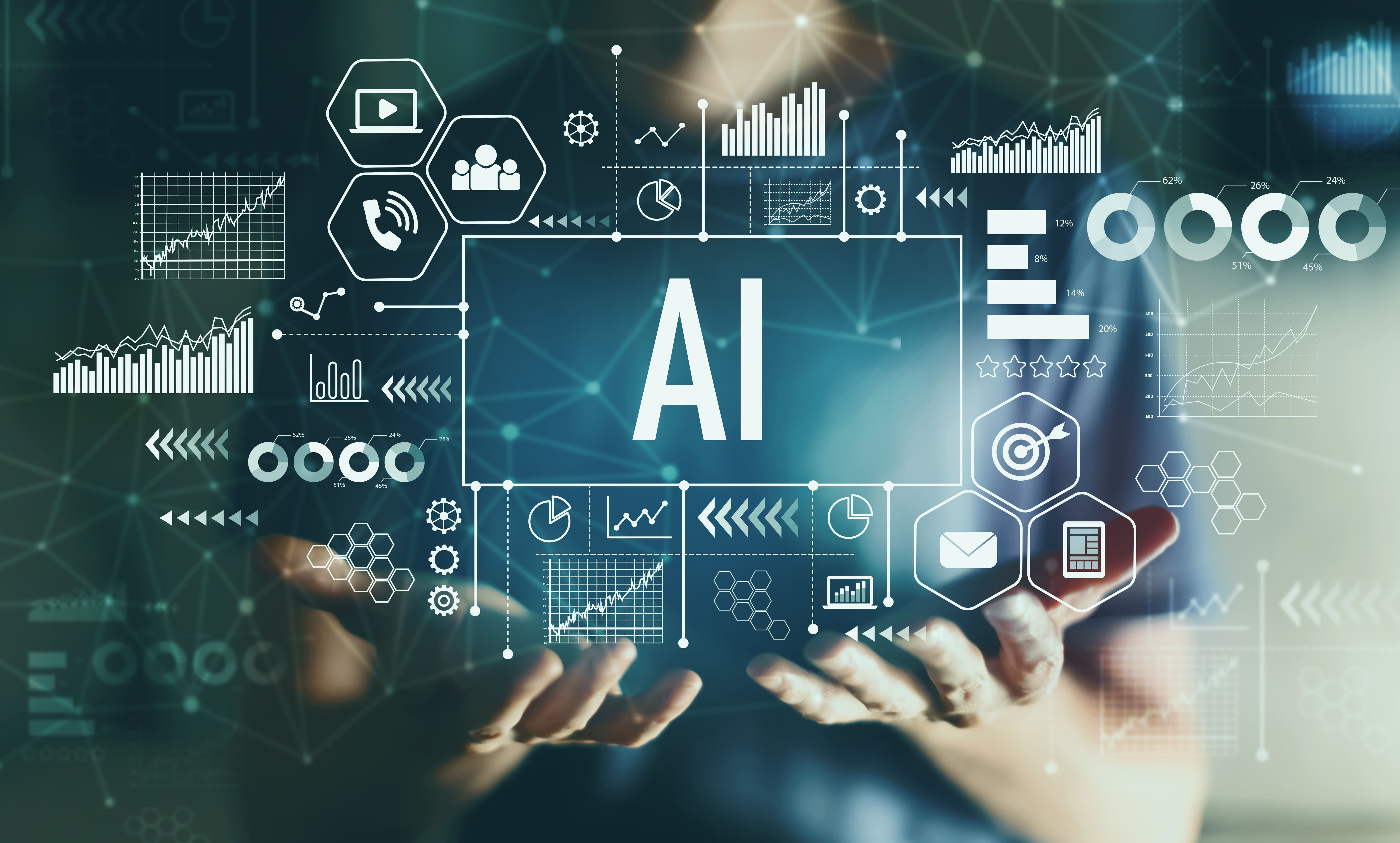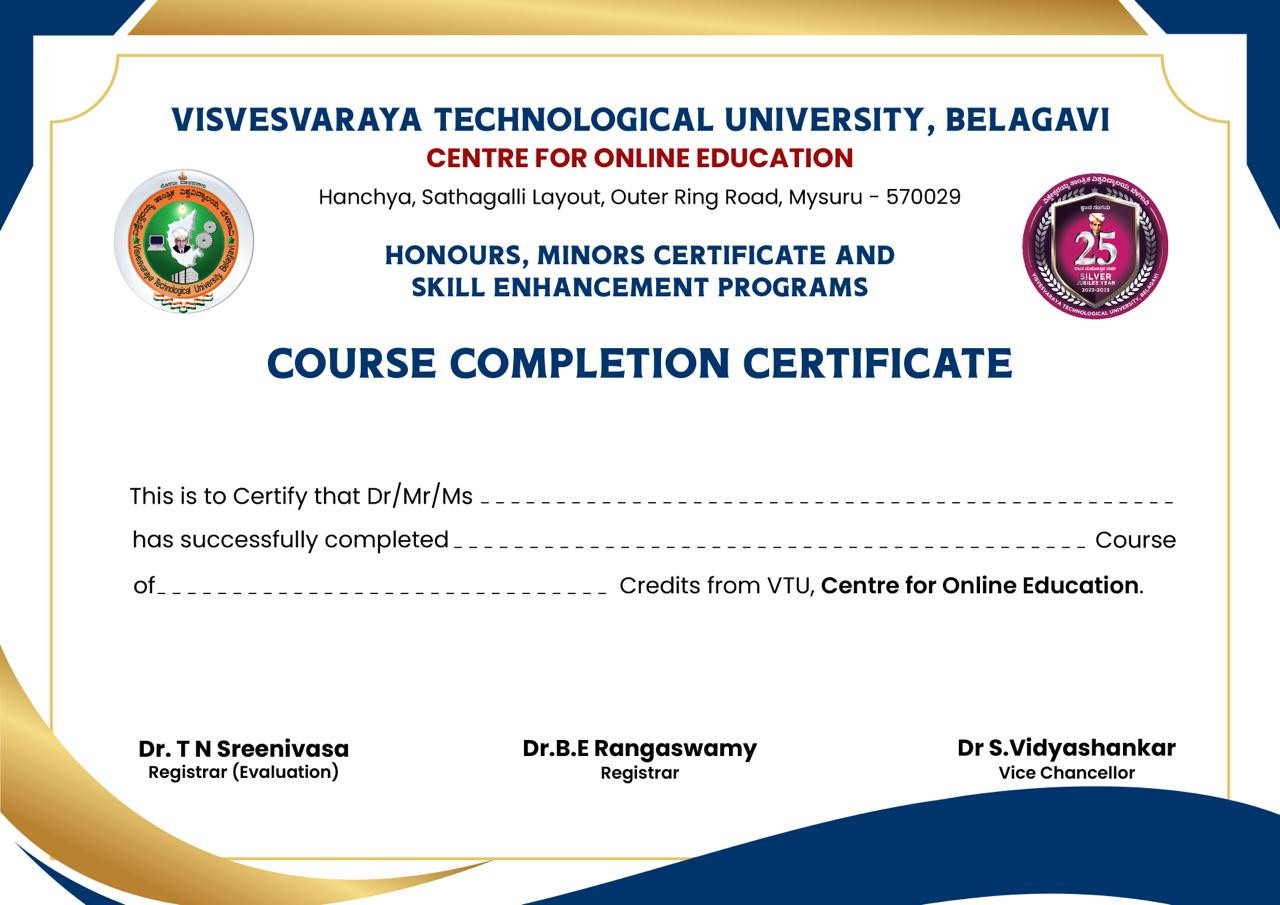Why choose our Artificial Intellligence Program
Learn Artificial Intelligence, Machine Learning, Deep Learning, TensorFlow, Natural Language Processing, Convolutional Neural Networks, Face recognition using CNN, Sentence similarity using embeddings from Word2Vec, LASER, Sentiment Analysis
Virtual hands-on environment integrated within the course to help learners to try what they have learned practically, Project based industry assignments designed by industry experts to implement learning
Three Periodic Formative Assessments to assess course progress
Remote internship opportunity and Placement assistance for successful candidates
Dedicated online course communities to connect with academic and industry experts
Helpdesk support for quick resolution of queries
Accelerate your Career with a Honours Degree
Online | 24 Months | Expert Lectures
Criteria
B.E/B.Tech. Students in their 5th semester onwards who want to diversify their careers in the industry
Lectures from renowned Subject Matter Experts from leading Academia Industry, Access to self paced lea
Built in hands on environment for practical implemention of the technologies covered, Industry assignm
Enhance your career with Remote Internship Opportunity and Placement Assistance.
What will you learn from the program?
Total Credits earned: 18 credits (across 3 courses and 270 hours of learning)
Key learnings: AI, ML, DL, TensorFlow, NLP, CNN, Face recognition using CNN, Sentiment Analysis and Similar question detection using Siamese networks.
Remote internships
Learn Artificial Intelligence on Real-World Application, Machine Learning for Real World Applications and Applications of Deep Learning and Neural Networks.
Project based industry assignments
Visibility to placement opportunities for successful candidates, subject to hiring criteria of corporates.
Curriculum
Course 1. Artificial Intelligence for Real-World Application:
Artificial Intelligence for Real-World Application as a course will prepare students to gain an edge. This course will help students understand Artificial Intelligence (AI), Machine Learning (ML), Deep Learning (DL), TensorFlow and Natural Language Processing (NLP). The course is offered in phygital mode which includes lectures, hands-on learning and industry inputs. The students will work on mini projects to gain real-world experience. Python 3.x and its associated packages will be used to implement the AI/ML concepts and algorithms.
Course 2. Machine Learning for Real-World Application:
Machine Learning for Real-World Application is a course that teaches the basic and advanced concepts of Machine Learning supported by industry relevant business case studies. The course uses Python as the programming environment. Datasets required for the case studies can be obtained from the internet. This state-of-the-art course is available for engineering students who aspire to take part in knowledge building and make computers capable of taking intelligent decisions in several areas such as smart home applications, providing bank loans to customers, business analytics including share market predictions, sentiment analysis, security and surveillance, real estate businesses and more.
Course 3. Applications of Deep Learning and Neural Networks:
Application of Deep Learning and Neural Networks is a course that teaches the basic and advanced concepts of deep learning and neural networks supported by industry relevant business case studies. The course uses Python as the programming environment. Datasets required for the case studies can be obtained from the internet.
Artificial Intelligence for real world application:
Module 1: Introduction to Artificial Intelligence (AI)
- Submodule 1: History of AI
- Submodule 2: Tools to be used for AI programming and its overview
- Submodule 3: What is cognitive science and the problem of perception
- Submodule 4: Applications of AI
Module 2: Search
- Submodule 1: Intelligent agents, uninformed search
- Submodule 2: Search Techniques 1 - search space, state space search
- Submodule 3: Search Techniques 2 - heuristic search, and pattern-directed search
- Submodule 4: Planning, control strategies and implementation, constraint satisfaction
- Submodule 5: Problem solving by heuristic search, A* algorithm, AO* algorithm
- Submodule 6: Adversarial search, game playing
Module 3: Reasoning
- Submodule 1: Proposition and first-order logic
- Submodule 2: Rule-based systems, semantic net, conceptual graph, inference and deduction
- Submodule 3: Resolution refutation, answer extraction
- Submodule 4: Reasoning under uncertainty - probabilistic reasoning, belief networks
Module 4: Machine Learning
- Submodule 1: Basic concepts
- Submodule 2: Linear models, perceptrons
- Submodule 3: Introduction to supervised learning and k-nearest neighbors (KNN), decision trees
- Submodule 4: Advanced models - support vector machine (SVM), ensemble classifiers
- Submodule 5: Introduction to unsupervised learning and clustering methods
Module 5: Neural Network
- Submodule 1: Introduction to neural networks
- Submodule 2: Backpropagation
- Submodule 3: Training neural nets using keras
- Submodule 4: Regularization, batch normalization, dropout
Module 6: Deep Learning
- Submodule 1: Introduction to convolutional neural networks (CNN)
- Submodule 2: Introduction to natural language processing (NLP) and toolkits
Module 7: Time Series Analysis
- Submodule 1: Introduction to time series
- Submodule 2: Stationary time series
- Submodule 3: Smoothing time series
- Submodule 4: Autocorrelation functions
- Submodule 5: Autoregressive integrated moving average (ARIMA) models
- Submodule 6: Signal transformations
- Submodule 7: Deep learning and time series analysis
Machine Learning for Real World Applications:
Module 1: Basics of Statistics
- Submodule 1: Linear algebra
- Submodule 2: Mathematical statistics
Module 2: Basics of Machine Learning
- Submodule 1: Introduction
- Submodule 2: Supervised learning
- Submodule 3: Unsupervised learning
- Submodule 4: Reinforcement learning
Module 3: Machine Learning Methodology (CRISP DM)
- Submodule 1: Data understanding
- Submodule 2: Data preparation
- Submodule 3: Exploratory data analysis
Module 4: Key Concepts in Machine Learning
- Submodule 1: Data sample
- Submodule 2: Model selection
- Submodule 3: Regression algorithms
- Submodule 4: Model validation
- Submodule 5: Model deployment
- Submodule 6: Imbalance in data
Module 5: Machine Learning Algorithms with Real-Life Use Cases
- Submodule 1: Unsupervised algorithms
- Submodule 2: Classification algorithms
Applications of Deep Learning and Neural Networks:
Module 1: Preliminaries
- Submodule 1: Introduction
- Submodule 2: Machine learning
Module 2: Basics of Neural Networks
- Submodule 1: Artificial neural networks
- Submodule 2: Popular networks
- Submodule 3: Popular tools
- Submodule 4: Case studies
- Submodule 5: The human brain
Module 3: Deep Neural Networks - 1
- Submodule 1: Introduction to Deep Learning (DL)
- Submodule 2: Convolutional Neural Networks (CNN)
- Submodule 3: Modern CNN architectures
- Submodule 4: Image classification using CNN
Module 4: Deep Neural Networks - 2
- Submodule 1: Recurrent Neural Networks (RNN) & LSTM
- Submodule 2: Word vector representations
- Submodule 3: Sentiment analysis
- Submodule 4: Sentence classification
- Submodule 5: Application in Natural Language Processing (NLP)
Module 5: Emerging Trends
- Submodule 1: Attention mechanisms and memory networks
- Submodule 2: Embeddings from LASER
Honours Degree In Artificial Intelligence
|
||
Programme Fee:
INR 40002 |

|
|
Application Process
Register to Honour/Minor degree by filling online application and by paying registration fee.
Get your online application approved.
Start enrolling to Honour/Minor degree program.
Admissons are closed once the requisite number of participants enroll for the upcoming cohort. Apply early to secure your seat.
Deadline:15-Apr-2024
Frequently Asked Questions
What Is an Honours Degree?
The Honours degree programme is designed to let the graduate engineering students to earn experiences to enhance themselves as professional engineers in the competitive world. Through this pr
How will this programme help students in building their proficiency?
This programme is envisaged to help build a strong foundation across various streams through digital lectures, formative and summative assessments, mini projects, mentorship from renowned ind
How is this programme different from other industry programmes?
This programme is designed to continuously make academic content more relevant to students by integrating industry inputs, which is a compelling need of the industry.
Will there be any internship and job opportunity provided through this programme?
Remote Internship opportunities will be offered to students who have completed their industry assignments, subject to vacancies and the corporate hiring policy. Successful students who have c
Contact
Still have queries?
Contact Us
Please fill in the form and a Program Advisor will reach out to you. You can also reach out to us at onlineprograms@vtu.ac.in or 9480223900

